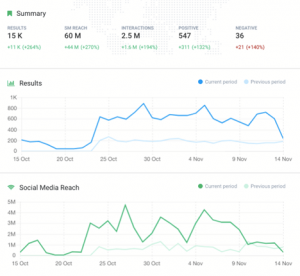
By Sarah Bregel
If you’ve scrolled through TikTok (or, if you’re over 30, Instagram Reels a day later), you’ve likely seen users posting about their “lazy girl jobs.” These gigs are definitely not your average 9-to-5 office roles. They’re hyper-flexible, work-from-home jobs that manage to accrue a decent income. Some people on TikTok described their jobs of administrative assistant or at-home marketing professional as lazy girl jobs. Essentially, anything with little-to-no oversight, that allows for a slower pace of life, and includes a highly manageable schedule counts.
The brag-worthy, lower-stress gigs are definitely having a moment right now. It started when 26-year-old Gabrielle Judge posted about her lazy girl job and coined the phrase. In the video, which now has more than 339,000 likes, Judge talks about how valuable it is to achieve real work-life balance. “I truly believe women are not meant to live paycheck to paycheck,” she says. Other “lazy girls” followed suit, posting about the benefits of their own flexible gigs that allow them to survive, and even thrive. The trend now has more than 47 million views on the platform.
The conversation is an important one because it seeks to redefine what it means to be “lazy” in our modern culture. Lazy typically means “unwilling to work.” But “lazy girl jobs” seem to be about being unwilling to only work or expend an exhaustive amount of energy on work. It’s the perfect antidote to the “killing yourself to live” culture that baby boomers, Gen Xers, and even millennials often had to live by. And why wouldn’t younger generations want something different—especially since decades of inflexible 9-to-5 jobs don’t seem to pay off? According to 2020 census data, nearly half of baby boomers have no savings for retirement. (Oops.)
Lazy girls believe there’s a better way. Some say they work only about 20 hours a week. Which gives them time for life’s other demands, and to make their health, and mental health, a priority. And they deserve credit for speaking up because lazy work has been happening for eons. We’re looking at you, absentee bosses and money managers, who, well, nobody really knows what they do all day. The only difference is, those suits don’t talk about how little they actually work.
Women deserve to be outspoken about this movement, though. They’ve been undervalued and overworked for long enough, and they’re tired. That’s why they’re ready to do a lot less and encourage others to do the same. They’re saying that the real female hustle of today isn’t “do-it-all and then some, and then do it all again tomorrow.” It’s about saying “no” to that noise and instead, put work into finding a stable job that doesn’t strip away freedom and autonomy.
Lazy girls tell us to make our own rules because doing minimal work for a solid paycheck is nothing new. Only talking about it is.
(8)
Report Post





